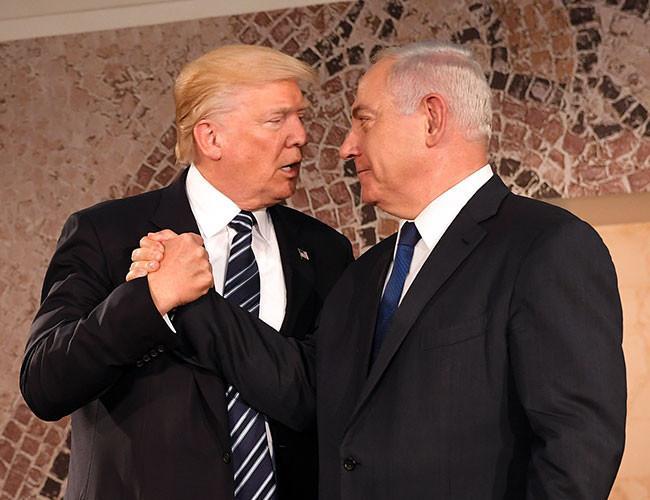
Israeli Prime Minister Benjamin Netanyahu took a step back on Jan. 18 from comments, challenged by U.S. President Donald Trump, that envisioned a one-year timeframe for the planned relocation of the U.S. Embassy in Israel to Jerusalem.
An official in Netanyahu’s office said the prime minister recognized that construction of a new embassy will take years but believes Washington is considering “interim measures that could result in an embassy opening much faster.”
The official, who declined to be named, did not define those steps or mention any dates for a Jerusalem embassy to begin operating.
In the past, Israeli media have speculated that, before a building is ready, the U.S. ambassador would operate part of the time out of a temporary location in Jerusalem.
Reversing decades of U.S. policy, Trump in early December recognized Jerusalem as Israel’s capital and set in motion the process of moving the embassy from Tel Aviv, imperiling Middle East peace efforts and upsetting the Arab world and Western allies alike.
Netanyahu, according to Israeli reporters travelling with him on a trip to India, said on Jan. 17: “My solid assessment is that it will go much faster than you think - within a year from now.”
Asked about Netanyahu’s comment, Trump told Reuters in an interview that was not the case.
“By the end of the year? We’re talking about different scenarios - I mean obviously that would be on a temporary basis. We’re not really looking at that. That’s no.”
The Israeli official, responding to Trump’s remarks, said: “The president and the prime minister are not saying anything different.”
U.S. Secretary of State Rex Tillerson said last month the embassy move was “probably no earlier than three years out, and that’s pretty ambitious”, a timeframe that administration officials have attributed to the logistics of finding and securing a site as well as arranging housing for diplomats.
Jerusalem is home to sites holy to the Muslim, Jewish and Christian religions. The Palestinians want East Jerusalem, which Israel captured in the 1967 Arab-Israeli war and annexed in a move not recognized internationally, as the capital of their future state.